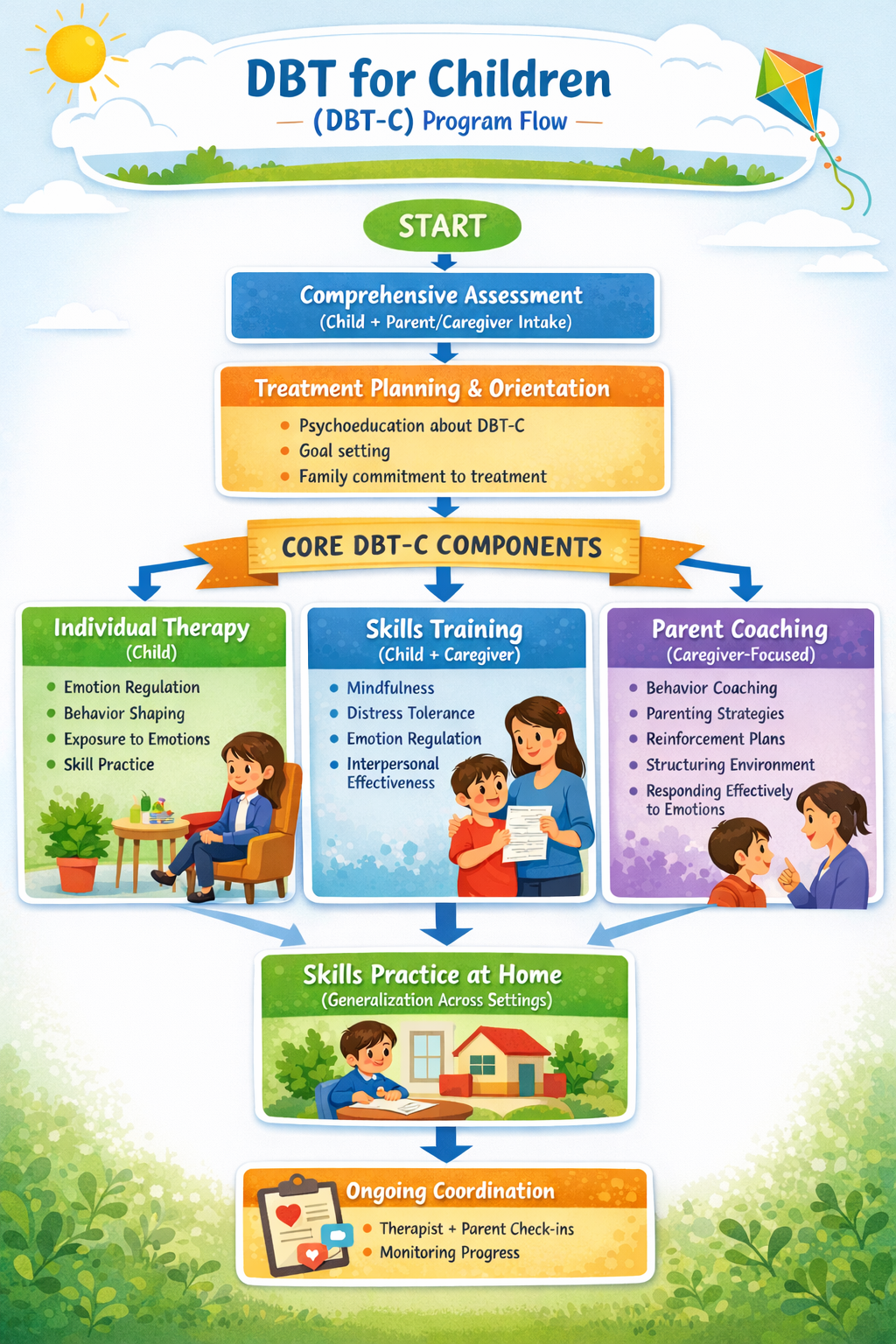
DBT for Children.
When big emotions feel overwhelming, we help families learn skills that bring calm, connection, and confidence
Children who are prone to emotional dysregulation may be referred to as “super sensors,” as they often feel overwhelmed by their own emotions; struggle with transitions; appear irritable or anxious, and may exhibit aggressive and/or risky behavior when dysregulated. As “super sensors,” these children also have incredible “super powers” that allow them to be more empathic, creative, and compassionate when they are given the tools to understand and manage their emotions.
Dialectical Behavior Therapy for Children (DBT-C) is an intensive, evidenced based treatment designed to help children and pre-adolescents with severe emotional dysregulation and ensuing behavioral dyscontrol (i.e., frequent, sudden and intense emotional reactions that tend to last much longer that other peers of their same age and result in problematic behaviors).
